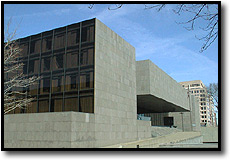Introduction to the U.S. Tax Court

The U.S. Tax Court is a Federal court of record established by Congress under Article I of the Constitution of the United States. Congress created the Tax Court to provide a judicial forum in which affected persons could dispute tax deficiencies determined by the Commissioner of Internal Revenue prior to payment of the disputed amounts. The jurisdiction of the Tax Court includes the authority to hear tax disputes concerning notices of deficiency, notices of transferee liability, certain types of declaratory judgment, readjustment and adjustment of partnership items, review of the failure to abate interest, administrative costs, worker classification, relief from joint and several liability on a joint return, and review of certain collection actions.
The Tax Court is composed of 19 presidentially appointed members. Trial sessions are conducted and other work of the Court is performed by those judges, by senior judges serving on recall, and by special trial judges. All of the judges have expertise in the tax laws and apply that expertise in a manner to ensure that taxpayers are assessed only what they owe, and no more. The Tax Court is located at 400 Second Street, N.W., Washington, D.C. 20217. Although the Court is physically located in Washington, the judges travel nationwide to conduct trials in various designated cities. Trials are conducted before one judge, without a jury, and taxpayers are permitted to represent themselves if they desire. Taxpayers may be represented by practitioners admitted to the bar of the Tax Court. A case in the Tax Court is commenced by the filing of a petition. In deficiency cases, the petition must be timely filed within 90 days (150 days if the notice of deficiency is mailed to a taxpayer outside the United States) after the date of the mailing of the deficiency notice.
A $60 filing fee must be paid when the petition is filed. Once the petition is filed, payment of the underlying tax ordinarily is postponed until the case has been decided.
In certain tax disputes involving $50,000 or less, taxpayers may elect to have their case conducted under the Court's simplified small tax case procedure. Trials in small tax cases generally are less formal and result in a speedier disposition. However, decisions entered pursuant to small tax case procedures are not appealable.
Cases are calendared for trial as soon as practicable (on a first in/ first out basis) after the case becomes at issue. When a case is calendared, the parties are notified by the Court of the date, time, and place of trial.
The vast majority of cases are settled by mutual agreement without the necessity of a trial. However, if a trial is conducted, in due course a report is ordinarily issued by the presiding judge setting forth findings of fact and an opinion. The case is then closed in accordance with the judge's opinion by entry of a decision stating the amount of the deficiency or overpayment, if any.
U.S. Tax Court Main | Home
|
